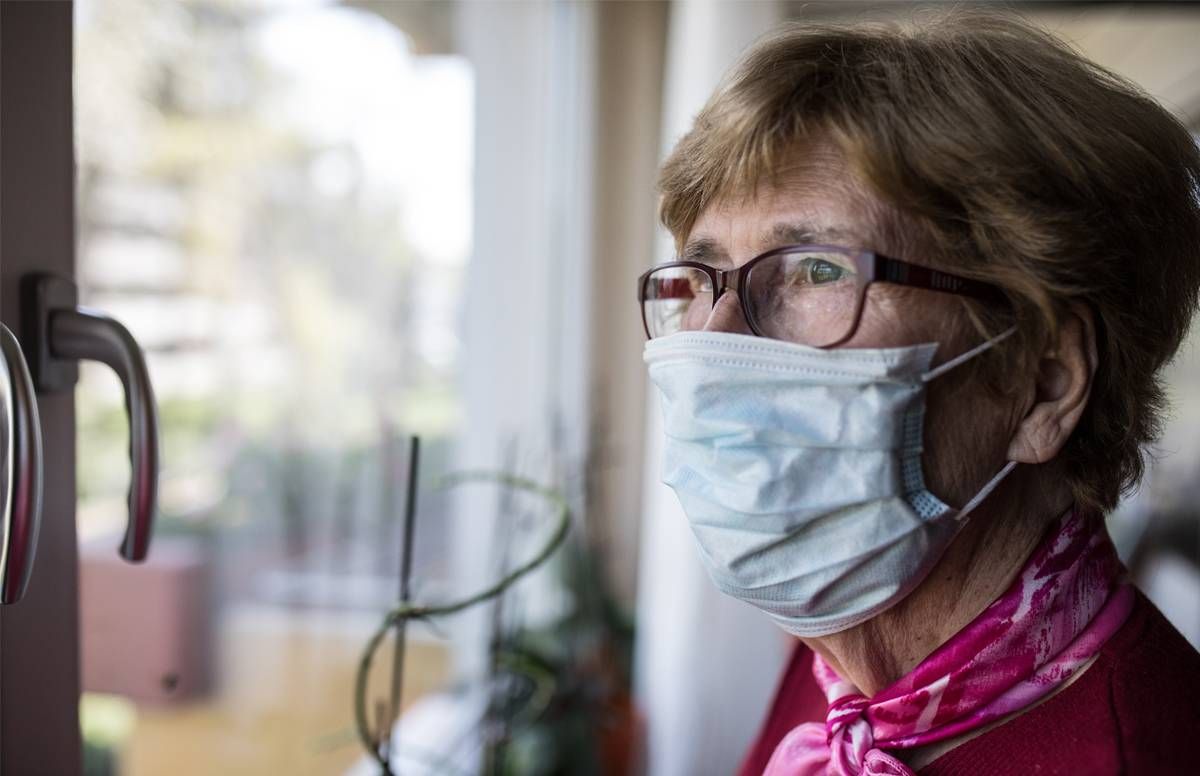What to Look for in a Nursing Home During the Pandemic
COVID-19 has changed the questions to ask on behalf of a loved one
In the first week of June, Karen Hirth did something the coronavirus had prevented her from doing for three months: move her 80-year-old Aunt Georgia into a nursing home.

It wasn’t a hard decision. Georgia had been declining both physically and mentally for several months. A broken hip had sent her to the Fondulac Rehabilitation and Health Care Center in East Peoria, Ill. a few years earlier for physical therapy. She knew the staff and liked the facility. Still, moving there permanently during a pandemic created some anxiety for Hirth.
"She was quarantined for fourteen days, but now she can leave her room as long as she wears a mask and stays at least six feet away from other residents,” says Hirth.
Nursing homes accounted for 164,055 confirmed coronavirus cases (up from 95,000 at the end of May) and 43,231 deaths — about a quarter of COVID-19 deaths in the U.S.
So far, Hirth is giving her aunt's nursing home high marks. Hirth gets regular updates from its social worker and recently has been allowed to visit Georgia on a patio with Plexiglass separating them.
Researching Nursing Homes Is Different Due to COVID-19
As states loosen coronavirus-related restrictions, some skilled nursing facilities (nursing homes) are once again welcoming new residents for short- term rehabilitation and long-term care and letting family members visit. But given COVID-19, properly researching potential nursing homes for a loved one is far different than a year ago.
As you undoubtedly know, the coronavirus has overwhelmed many nursing homes, with family members struggling to get information about their residents, and the number of COVID-19 cases and deaths has been staggering.
According to the Centers for Disease Control, at the end of July, nursing homes accounted for 164,055 confirmed coronavirus cases (up from 95,000 at the end of May) and 43,231 deaths — about a quarter of COVID-19 deaths in the U.S.
Our Commitment to Covering the Coronavirus
We are committed to reliable reporting on the risks of the coronavirus and steps you can take to benefit you, your loved ones and others in your community. Read Next Avenue's Coronavirus Coverage.
The 2 Sisters Senior Living Advisors referral service, based in Massachusetts, is getting flooded with calls from families looking for advice on what to look for in skilled nursing in the era of COVID-19.
“Some are in the hospital looking for rehab with the intention of transitioning to long-term care,” says referral specialist Emily Rogue.
What the 'Nursing Home Compare' Tool Can and Can't Tell You
So, how do you go about making an educated decision? Start by looking online.
Nursing homes are licensed, regulated and inspected by states and the U.S. Department of Health and Human Services’ Centers for Medicare and Medicaid Services (CMS). A visit to the CMS website is a good jumping off point.
Go to its Nursing Home Compare tool to find a list of local nursing homes.
You’ll see CMS’ five-star quality rating system evaluating nursing homes. One star is considered far below average, three stars is average and five stars is far above average. Nursing Home Compare gives facilities individual ratings on health inspections, staffing and quality measures, as well as an overall rating.
The star ratings are no guarantee of quality, but a useful research tool.
Not surprisingly, CMS Administrator Seema Verna says her agency has found that nursing homes with one-star ratings have generally had more cases of the coronavirus than ones with four or five stars.
You can find out how many coronavirus cases a nursing home has reported by going to CMS’s COVID-19 Nursing Home Data site.
There, you enter the name of a nursing home to track the number of new admissions previously treated for the virus. You can also find the total number of residents who’ve either tested positive for COVID-19 or have been treated for it. CMS updates these numbers weekly.
You’ll also want to ask how much personal protective equipment (PPE) the nursing home has and how it’s being used.
That site has one notable shortcoming, though: it doesn’t tell you whether any staff has been infected with the coronavirus. So, this is the point where you need to start digging deeper, talking to nursing home administrators and asking pointed questions.
The First Questions You Should Ask
The first questions to ask: Has any staffer been treated for the virus and how often are staffers being tested for it?
New York, for instance, has mandated that nursing home employees must be tested twice a week. Facilities in other states have adopted similar protocols, including daily temperature checks for staff and residents.
Rogue advises asking what kind of infection-control procedures the nursing home has for residents as well.
“I’m seeing many isolating new admissions. Residents receive therapy in their rooms, and they’re checked every fifteen minutes to see how they’re doing,” says Rogue.
You’ll also want to ask how much personal protective equipment (PPE) the nursing home has and how it’s being used. CMS data shows that many states still have numerous nursing homes without enough N95 masks, surgical masks and gowns.
Ask the facilities: Do they have an ample supply of gowns, masks, and gloves? And if they say “yes,” ask them how they define “ample.”
Find Out About Technology, Too
Now, more than ever, it’s also important that nursing homes embrace technology.
COVID-19 lockdowns are typically making nursing home tours impossible, so many are offering virtual tours instead. Taking one gives you a chance to see the size of resident rooms; how social distancing is being practiced and how clean the overall facility appears (bearing in mind that the nursing home is choosing what you can see).
Visitor restrictions can increase feelings of isolation for nursing home residents during the pandemic. So, check to see if the nursing home you’re considering provides cell phones to let residents talk to family members. Also: Does it provide laptops or tablets, allowing them to FaceTime, Zoom or Skype with loved ones?
Robert Kramer, president of Nexus Insights and an expert on long-term care facilities, says access to telehealth should be a priority for anyone seeking a nursing home.
“We now realize that it’s not a good thing in a time of infectious disease to send people out to get their health care,” says Kramer. “It’s risky at best and you only want to do it when necessary.”
During the pandemic, CMS has expanded telehealth services covered under Medicare and Medicaid, including emergency department visits, home visits and therapy services. These new rules apply to nursing homes, too.


